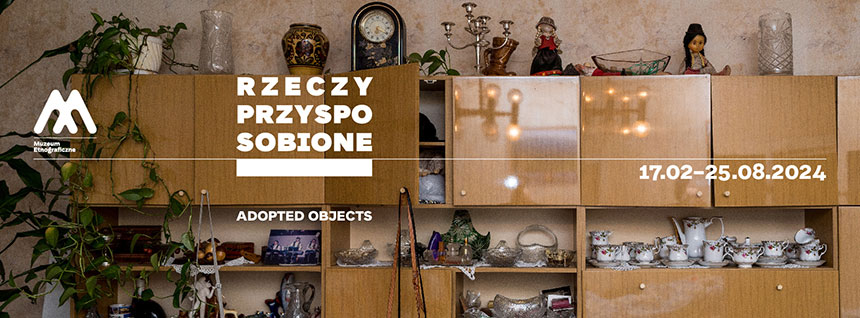The formal definition of adoption is “the action or fact of legally taking another’s child and bringing it up as one’s own, or the fact of being adopted.” Can we think about adopting things and imagine a family of people and objects?
A thing adopted may also be adapted to serve a new need, perform a new function. So, adoption may involve a relationship developing between people and objects that were initially alien or even hostile, a process of building a sense of connection and belonging together. It fills in the hiatus in individual and collective history resulting from the past marked by conflict and resentment. It makes it possible to connect to the people accessible only through things they have left behind. Thus, adopting things becomes an instrument of establishing relationships akin to family ties, inheritance, and continuation. The question arises of what lies behind the often-repeated phrase “inherited from the Germans” and what role in this process is assigned to the prewar owners of these objects.
Nut grinder
Wrocław
courtesy of Alicja and Kazimierz Orzechowski
Among the multitude of vintage objects filling the home of the Orzechowskis, things brought over from Lvov, which the family of Kazimierz had to leave after the war, mingle with those once belonging to the house’s prewar owners. All these objects have become part of everyday life and thus do not provoke questions concerning their provenance which in many cases has become obliterated in memory. “It is first of all practical things, things that have continued to get used, that have survived.” But in this case, the usefulness of the nut grinder – very solid, made of tough steel – had become intertwined with its emotional value. The adopted object has become an important part of the family tradition of baking cakes in celebration of seasonal holidays and festive occasions: “our family name is Orzechowski [in Polish, derivative of “nut”], so our family cake is the nut cake!” (Alicja and Kazimierz Orzechowski).
